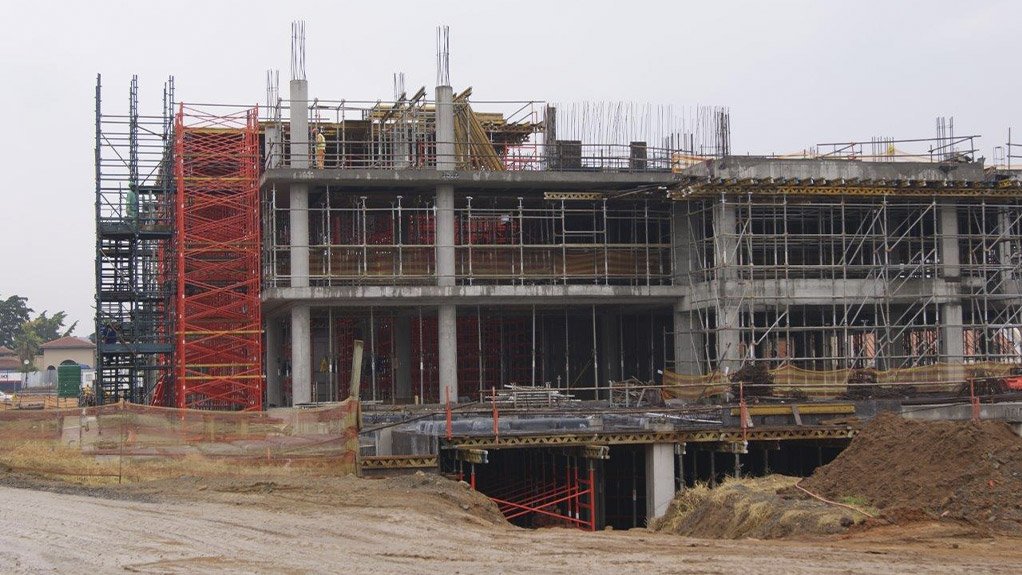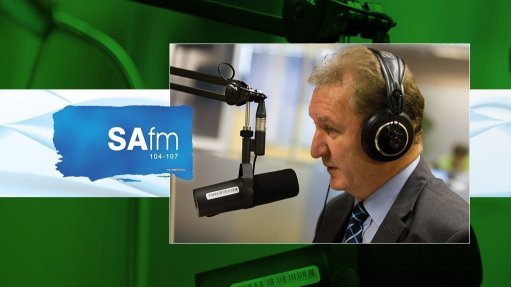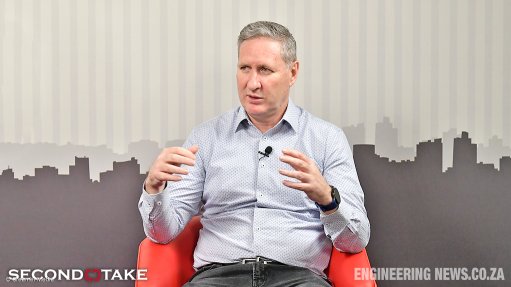Local labour, products and skills transfer at the heart of construction of Tlhabane Square
This article has been supplied.
Tlhabane Square, a new mixed-use precinct being developed by the Public Investment Corporation in Rustenburg, is being constructed using a significant percentage of local labour and locally-sourced building materials, and is facilitating skills transfer at the same time. Through this, the project is helping to drive a national imperative to build skills and access to opportunities, while also building pride in the local community.
Project managed by Betts & Townsend and constructed by Trencon / WBHO in a 70/30 joint venture, Thlabane Square represents a significant investment in a part of Rustenburg which needs uplifting. Situated along the along the Swartruggens Road (R104) and bordered by Monareng Street and Motsatsi Street, the precinct consists of the following:
-
A retail mall offering 31,000sqm of GLA;
-
Offices: ±12,000sqm of GLA (incorporating Home Affairs, SASSA, a Labour Department office and a hotel with a conference facilities);
-
Ancillary buildings including a police station at 10,000sqm GLA;
-
New Magistrate’s Court: 8,000sqm GLA;
-
The refurbishment of the existing service station; and
-
A new taxi drop-off, tyre fitment centre and traders’ market.
The retail mall itself comprises two levels of retail together with parking. In addition, direct on-grade open parking will be available throughout the precinct. Ultimately, the precinct as a whole will serve the shopping and service needs of customers, offering them the benefits of a regional mall combined with access to social amenities and government departments. Its excellent position, visibility and access make it ideal for this purpose.
Not only is the success of the final project important – much emphasis has been placed on maximising community impact during the construction and development process, too. Preferential procurement criteria were set out by the client in the tender requirements, indicating that 30% of the work needs to be undertaken by local, 51% black owned companies. George Honey, contracts manager for Trencon, explains that the JV drew up a procurement plan in the initial stages of the project which ensures that this requirement will be met. The majority of the unskilled labour being used on the general building work is local, as is much of the semi-skilled labour.
Because of the relative remoteness of the site, building materials are also procured locally as much as possible. “We passed on the same preferential procurement requirement criteria to our specialists subcontractors in a back-to-back contract. Meeting this requirement is not always easy, but so far everyone has stayed on target and our reporting reflects that,” says Honey. Local labour and construction materials have so far been used in a variety of areas including civil works, electrical and plumbing work, reinforcing steel, concrete and formwork erection. The construction of a standalone Cashbuild on the site has been subcontracted to a Level 6 CIDB registered contractor.
In formulating a strategy for recruiting local people, the construction team has focussed mainly on unskilled and semi-skilled people who can be upskilled. “We have a labour desk officer who was elected by the local community. He has a database of available people and we source labour through that database when needed,” Honey explains. A minimum wage which is well above the basic statutory minimum wage was set in the initial stages of the project.
Active skills transfer is taking place on site, especially from the specialist subcontractors. People have been trained not only in construction skills such as concrete placement, crane operation and scaffolding erection (to mention just a few), but in administrative tasks including time and attendance management, health and safety administration, and even first aid and fire prevention. “If we have a post vacant, we identify someone within the local community and train them up in one of these skills,” Honey says. This includes giving them on-site training and formal training as required.
Local suppliers are being utilised extensively, with the bulk of the building materials being locally sourced except for a few specialist capital and equipment items. All the sand, cement, bricks, concrete, mortar, reinforcing steel, filling material, plant, equipment, stationery, provisional and general items, and even Covid-19 sanitation items have been sourced from local suppliers. “While the use of local suppliers fall under our 30% procurement plan, it is safe to say that around 40% of our supply is included on what we report on, and some 60% falls under the subcontractors,” Honey notes.
When it comes to managing a project of this complexity, it is essential to have the kind of hands-on involvement that a specialist project management consultancy like Betts & Townsend provides. “We pride ourselves on the fact that everyone in our team has construction experience and we work as part of the team, heading off problems before they arise on site and proactively managing value for the client,” says Etienne Hairbottle, the project manager responsible for Tlhabane Square.
With so many requirements to meet – and ultimately needing to deliver a project on time and within budget – the task can be daunting. And while unexpected glitches like geotechnical difficulties and the national lockdown response to Covid-19 have been setbacks, the project is currently progressing well and is on track for completion around the end of July 2021.
Comments
Press Office
Announcements
What's On
Subscribe to improve your user experience...
Option 1 (equivalent of R125 a month):
Receive a weekly copy of Creamer Media's Engineering News & Mining Weekly magazine
(print copy for those in South Africa and e-magazine for those outside of South Africa)
Receive daily email newsletters
Access to full search results
Access archive of magazine back copies
Access to Projects in Progress
Access to ONE Research Report of your choice in PDF format
Option 2 (equivalent of R375 a month):
All benefits from Option 1
PLUS
Access to Creamer Media's Research Channel Africa for ALL Research Reports, in PDF format, on various industrial and mining sectors
including Electricity; Water; Energy Transition; Hydrogen; Roads, Rail and Ports; Coal; Gold; Platinum; Battery Metals; etc.
Already a subscriber?
Forgotten your password?
Receive weekly copy of Creamer Media's Engineering News & Mining Weekly magazine (print copy for those in South Africa and e-magazine for those outside of South Africa)
➕
Recieve daily email newsletters
➕
Access to full search results
➕
Access archive of magazine back copies
➕
Access to Projects in Progress
➕
Access to ONE Research Report of your choice in PDF format
RESEARCH CHANNEL AFRICA
R4500 (equivalent of R375 a month)
SUBSCRIBEAll benefits from Option 1
➕
Access to Creamer Media's Research Channel Africa for ALL Research Reports on various industrial and mining sectors, in PDF format, including on:
Electricity
➕
Water
➕
Energy Transition
➕
Hydrogen
➕
Roads, Rail and Ports
➕
Coal
➕
Gold
➕
Platinum
➕
Battery Metals
➕
etc.
Receive all benefits from Option 1 or Option 2 delivered to numerous people at your company
➕
Multiple User names and Passwords for simultaneous log-ins
➕
Intranet integration access to all in your organisation





















